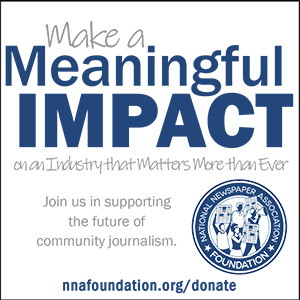5 rules this copy editor is losing sleep over
Oct 17, 2014
By Teresa Schmedding
President | American Copy Editors Society
Deputy Managing Editor of Digital Operations, Arlington Heights (IL) Daily Herald
After my last article on things I’m not losing sleep over as a copy editor, I thought it only fair to tell you what is keeping me up at night.
No. 1: Numbers, numerals
—any digits
Math in copy makes me nervous. And it’s not because I’m afraid of it. I lose sleep over it because it’s so easy to mess up. And the numbers matter a lot to readers.
We don’t guard enough against our own ignorance and insecurities when it comes to numbers. As a result, we often just repeat what’s handed to us. And sometimes those numbers are confusing to readers; other times they are just flat-out wrong.
This is an area we can’t afford to flub up. Our readers are counting on us.
No. 2: Privacy, fairness and accuracy in crime, tragedy stories, reader comments
If a girl dies in a car crash and you see her picture on Facebook, can you grab it and republish it? Can you publish her friends’ comments of grief? If a 17-year-old steals a candy bar, should that blurb exist on your website in perpetuity? If you cover the opening of a restaurant, is it OK to let people post comments bashing the restaurant?
There are no easy answers.
To me, there are two levels to consider when debating these issues.
The first is a question of legality. Questions of copyright tend to be pretty clear, especially in use of photos. “Borrowing” from social media is a lot more gray.
The second—and harder—question is whether or not it’s fair. Just because it’s legal, doesn’t make it right. That answer is subjective and seems to be constantly shifting.
But what is black and white is making darn sure the information is correct. And we as editors need to challenge content that just has no verification beyond what someone Googled. We also need to make sure we’re not just repeating someone else’s poorly sourced material.
No. 3: Plagiarism and fabrication
An editor in the recent Jayson Blair documentary said every newspaper has had a case of plagiarism or fabrication; we’re fools if we think we’re immune. I agree.
Blair said, in the documentary, that once he figured out he could get away with it, there was nothing to stop him.
That screams to me how important it is that editors be on guard.
As editors, we’re flying through content so fast that we don’t have a chance to catch what we used to. Or we’re worried about losing our jobs, so we don’t want to make waves. But we have long been the ethical backbone of our publications; our gatekeeper role is now more important than ever.
Plagiarism and fabrication are crimes against our credibility. We should all be losing sleep over that.
(ACES recently published a free ebook with tips on how to prevent plagiarism and fabrication. Download it at http://www.rjionline.org/newsbooks/aces.)
No. 4: Pun headlines
They don’t add clarity; they often just confuse readers.
And, in the most egregious cases, they have nothing to do with the story and cheapen it.
I lose sleep over how many headline writers persist in publishing self-indulgent pun headlines. And applauding themselves for doing it. Unless you work for The Onion, just stop.
No. 5: Our content is just too darn boring for anyone to read. Or too homogeneous to pay for.
Good journalism costs money to produce. Good, local journalism costs even more money to produce.
I stay awake at night worrying that we’ve crossed that line—we’ve now cut our ranks to the point that we’re churning out too much boring copy that subscribers won’t find it interesting enough to pay for and that, in turn, advertisers won’t pay to support us.
We need skilled reporters, editors, graphic artists, photographers and the list goes on. We need a business savvy, yet innovative, executive team; great delivery drivers; excellent sales staff; smart IT/Web programmers; patient customer service reps; and outstanding human resources peeps.
None of these people can work for free.
It becomes a chicken-egg question for me. How can you sell people on the value of your product without investing in it? And how can you afford to invest in it if people aren’t paying for it?
These are the things I lose sleep over as a copy editor. What’s on your list?
tschmedding@copydesk.org






